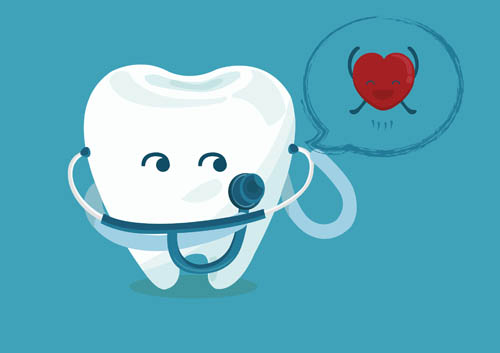
The Importance of Facial Protection
Americans from all walks of life should mark April as National Facial Protection Month on their calendars. The American Association of Pediatric Dentistry, Academy for Sports Dentistry, American Academy of Pediatric Dentistry, and American Association of Oral and Maxillofacial Surgeons have combined forces to sponsor this annual campaign, which aims to educate and remind us of the importance of protecting our face and teeth against impacts and injuries.
Wearing a helmet can save your life and prevent devastating physical damage in a variety of situations, from playing football to riding a bicycle. According to the American Association of Oral and Maxillofacial Surgeons, helmets reduce the risk of various head injuries by as much as 85 percent. Whether helmet laws apply in your area or not, Dr. Barry Mercer and our team at Barry Mercer, DDS want you to make sure you and your loved ones wear helmets with the appropriate safety ratings for specific activities. (A sticker on or inside the helmet will usually indicate this rating.) Helmets can also help save your teeth if they come with an attached faceguard, an essential addition for football players and others involved in contact sports.
Preventing Dental Injuries
A mouthguard can protect you against a variety of dental injuries, such as cracked, broken, or knocked-out teeth. The American Dental Association states that mouthguards play an essential role in preventing up to 200,000 dental injuries each year, and many states mandate their use for sports activities such as football and hockey. The Academy for Sports Dentistry warns, however, that these mouthguards must be custom-fitted as precisely as possible to prove effective. Have a professional-quality mouthguard molded and fitted by our team at Barry Mercer, DDS for better protection than a generic store-bought or “boil-and-bite” variety can offer. These cheaper versions tend to wear out quickly, interfere with proper breathing, and provide uneven degrees of cushion against impacts. Always have a fresh mouthguard fitted for each new sports season.
Choose the right combination of helmet, faceguard, and mouthguard to protect your teeth and face this April, and tell your friends to do the same! To learn more about mouthguards, or to schedule an appointment with Dr. Barry Mercer, please give us a call at our convenient Loomis office!

Sucking is a common instinct for babies and the use of a pacifier or their thumb offers a sense of safety and security, as well a way to relax.
According to the American Academy of Pediatric Dentistry, the majority of children will stop using a pacifier and stop sucking their thumb on their own between the ages of two and four years of age. Prolonged thumb sucking or use of a pacifier can have dental consequences and needs be taken care of sooner, rather than later.
Many dentists favor pacifier use over thumb sucking because it makes it easier for parents to control and even limit the use of a pacifier. If thumb sucking lingers, the same strategies used to break the baby from using the pacifier can be used for thumb sucking.
Precautions
Dental Complications
Long term pacifier use can lead to an assortment of dental complications including:
The risk of any or all of these things happening is greatly increased if thumb sucking and pacifier use is sustained after the baby’s teeth start to come in.
Breaking the Thumb Sucking and Pacifier Habit
Most toddlers and children will stop sucking their thumb or using a pacifier between the ages of two and four on their own. However, if intervention is necessary here are a few tips to help your child break the habit:
Talk to Dr. Barry Mercer and our team, as we have many tricks up our sleeves that will be effective in breaking your child’s thumb sucking or pacifier use.

If you are like many people, you might think of your oral health as separate from your overall health. After all, most dental coverage plans are distinct from health care coverage. However, your oral health goes far beyond being able to chew nutritious and enjoyable foods. Oral health problems may be an indicator of a variety of other health problems.
Links between Oral Health and Overall Health
In the late 1980s, researchers noticed a trend among patients who had recently suffered from heart attacks. As the Journal of the American Dental Association reported, they observed that these patients were more likely to have dental caries or cavities, periodontitis or inflammation around the tooth, and other forms of gum disease. Later studies found similar results, and dentists and doctors now recognize poor oral health as a risk factor for a variety of heart conditions, such as heart attacks, atherosclerosis, and coronary heart disease.
There are even more links between oral health problems and overall health problems. Some individuals do not find out that they have Type 2 diabetes until a dentist sees that they have periodontitis. If you have diabetes, worsening periodontitis can indicate that your diabetes is not under control.
Poor oral health is also associated with rheumatoid arthritis. Furthermore, poor oral health puts you at higher risk for respiratory infections, such as pneumonia, because harmful pathogens can enter your body through your mouth.
Take Care of Your Teeth
Keeping your teeth healthy remains important, especially as you grow older. Older adults are more prone to dental caries and other oral health problems, as well as to chronic diseases. While taking care of your oral health might not prevent a specific disease, a healthy mouth is a significant factor in your overall health.
You can take care of your teeth by continuing to brush twice a day and floss every day. Avoid consuming too many sugary and starchy foods, and drink water after each meal or snack to rinse your teeth. See Dr. Barry Mercer for regular checkups, and contact Barry Mercer, DDS if you have any concerns about your teeth or gums.

Millions of people, around Loomis and beyond, wear green on St. Patrick’s Day so they can show their spirit for the holiday and avoid getting pinched. While it may be easy for you to throw on a green shirt, sport a St. Patrick’s Day button, or wear a pair of emerald-hued shoes, if you’re an avid St. Patty’s Day enthusiast you may want to try something different this year. Dr. Barry Mercer thought of a few ideas that will help you take your holiday spirit to the next level:
Visit Chicago’s Green River
If you happen to be near the Windy City during St. Patrick’s Day or you’re thinking of planning a trip, don’t miss out on going downtown to watch the large-scale celebration that kicks off when the city dyes the river bright green. According to the Chicago Sun-Times, Chicago has been celebrating the holiday with this tradition for more than 50 years, with tens of thousands of people gathering annually to witness the mysterious dying process and the stunning result.
Don Green Face Paint
Just like an avid sports fan on game day, you can use green face paints to showcase your enthusiasm for this holiday. Avoid breakouts or allergic reactions by only using paints that are specifically meant to be applied to the skin. A little bit of face paint can cover a large area, so feel free to get creative and decorate the whole family on St. Patrick’s Day.
Eat Green All Day
Not a fan of green eggs and ham? With the increasing popularity of green smoothies, there’s no better time to get in on this health craze. To create a green smoothie without the aid of food coloring, you can simply blend a generous amount of a leafy green vegetable, such as spinach or kale, with the ingredients that you would typically use to make a smoothie, like fruit, ice, milk, or juice. Keep the trend going throughout the day by using those same vegetables to create a green soup, egg salad, or a batch of bright green pastries. As an added bonus, you’ll get a healthy dose of vitamins without changing the taste of most of these foods.
If your old holiday routine has gotten stale, leave your green T-shirt in the drawer and try one or all of these tips. Don’t be surprised if you have so much fun that you decide to start a new, annual St. Patrick’s Day tradition! Have a happy St. Paddy’s day from Barry Mercer, DDS!